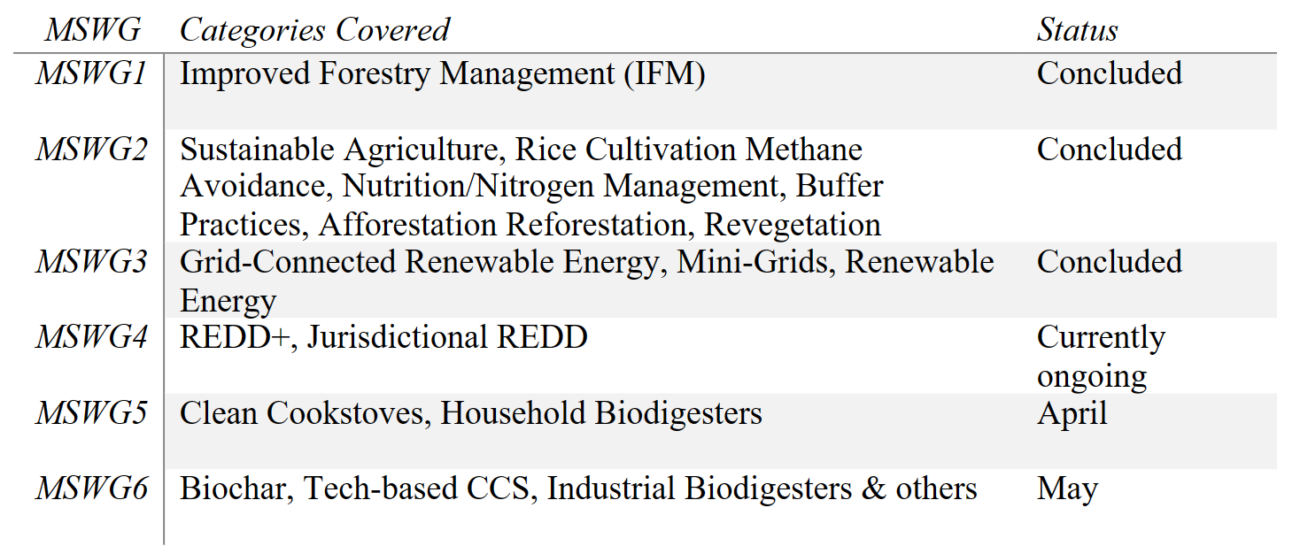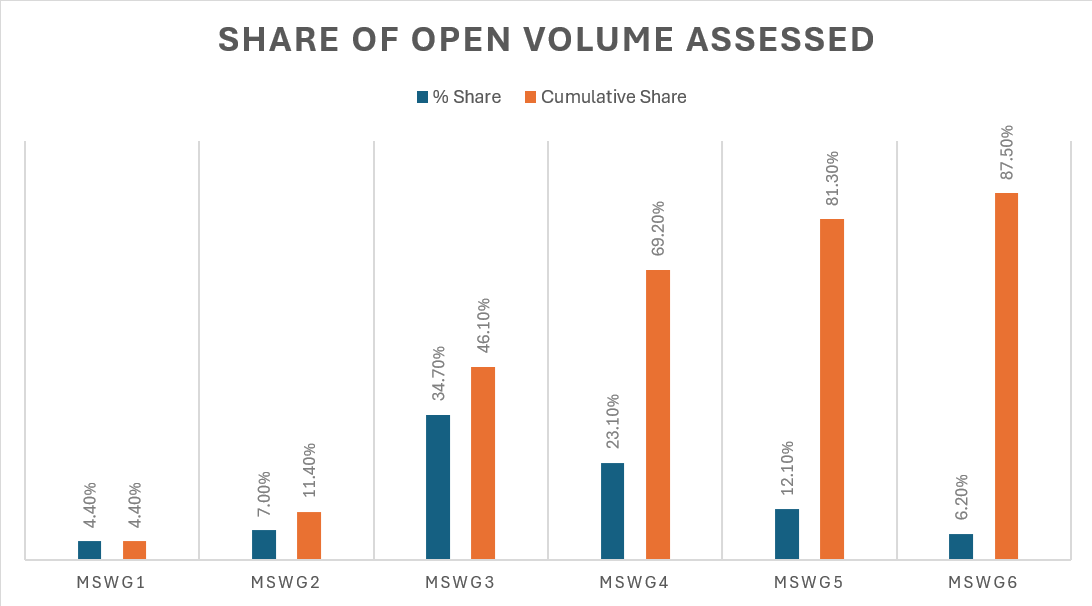- Home
- Markets
- Cap & Trade
- Clean Fuels Standard
- Carbon Offsets
- Carbon Linked Mechanisms
- Get to Know
- Market Coverage
- Cap & Trade
- Clean Fuels Standard
- Carbon Offsets
- Carbon Linked Mechanisms
- Use Cases
- About us
- Membership Plans
- InSights
- Webinars
- Scenario Simulators
- CAFÉ
- CAFÉ – Carbon Analysis Forecasting Engine Enter my CAFÉ
- Cap-and-Trade
- Clean Fuel Standards
- Carbon Offsets
- Articles
- Setting the Standard: ICVCM Accelerates CCP Accreditation
Setting the Standard: ICVCM Accelerates CCP AccreditationVCMWednesday, 10th April 2024
Tanay Sawhney
Key Takeaways
- IC-VCM accredits three major registries under Core Carbon Principles (CCPs): ACR, CAR, and Gold Standard
- Methodology assessments underway through Multi-Stakeholder Working Groups (MSWGs) and internal assessments
- MSWGs covering about 46% of the current open volume have concluded and final assessments are awaited
Introduction
The Integrity Council for the Voluntary Carbon Market (IC-VCM) has ushered in a new chapter for the voluntary carbon market by accrediting three of the four major registries – ACR, Climate Action Reserve (CAR), and Gold Standard – under its Core Carbon Principles (CCPs). However, a closer examination of recent developments reveals strategic sequencing and significant improvements in transparency that are poised to reshape the carbon market landscape.
The fourth major standard, Verra’s VCS, is expected to be assessed by the Council in the coming months and is taking longer due to the size of the program. Other programs such as the ART, Social Carbon and Isometric are also to be considered, with the assessments expected to be released in April or May this year.
Methodology Assessments
While these accreditations mark significant milestones, the true litmus test lies in the assessments of the methodologies they encompass. With over a hundred methodologies classified into nearly 30 categories, the Council’s deliberations delve into intricate details through Multi-Stakeholder Working Groups (MSWGs).

Table 1: Status of Methodology Assessments

Figure 1: Percentage and Cumulative Shares of Current Open Volume Assessed
The Council has wrapped up the first set of meetings covering Improved Forest Management (IFM), Soil-based Avoidance and Removals, Af/Reforestation and Renewable Energy, which covers about 46% of the current open volume. The Council is now moving to REDD+ and JREDD methodologies which will be followed by clean cookstoves and finally novel removal techniques including biochar and CCS.
A discernible pattern emerges in the Council’s approach, with a sequential progression from less complex to more intricate methodologies. This strategic sequencing reflects a commitment to thorough evaluation, particularly in areas where integrity concerns have surfaced, such as REDD+ and clean cookstoves.
Retirement Disclosures
Gold Standard, in response, has updated certain terms to reflect their adherence to the CCP requirements. This includes disclosure of information regarding the retiring entity and the purpose of said retirement. These improvements in transparency are likely to be reflected in other programs covered by the CCP and could perhaps result in the end of an era of ghost retirements.
cCarbon’s Take
In conclusion, it is still yet to be determined whether the IC-VCM’s CCP initiative will ultimately prove highly impactful and widespread, or whether the effort will lack adoption and turn out as ‘a red herring’. The speed of delivery of the assessments, the consistency in approach, as well as drawing the difficult threshold over quality will all determine the eventual impact. Likely the most vital factor in the CCP’s level of adoption will come from SBTi, and whether that organization chooses the CCP initiative as the bedrock for credit use towards Scope 3 emissions.
By accrediting major registries, making modest efforts to enhance transparency, and proceeding cautiously with methodology assessments, the Council is steadily walking the path to restore trust and revive growth in offset demand whilst simultaneously positioning itself as the arbiter of quality in the VCM.
Table of Content
You might also likeArticles
Interviews
News
- No data Found!
Free Trial or Login to access
Our market portals and InSights are only for logged-in users with the relevant access. This can be you too…
Your Current Membership Does not Include this Content
This content is outside of your current package. If you need this too, let’s talk…
Solve Your Problems
Send this problem to our Clients team, and we will get back to you shortly with a plan of attack.
orSpeak and exchange notes with our specific-market expert, use your complimentary hours.
Arrange with Client TeamLet's Connect
Tell us who you are, and what you're after. We'll find you the right person with the answer - before you wake up twice.
Request Access to Data Tool
Tell us who you are, and what you're after. We'll find you the right person with the answer - before you wake up twice.
Newsletter Sign Up
Your name and email in exchange for staying up to date across the world's environmental markets... what a deal?!
MEMBERSHIPS
Sign Up for Free Trial or Login to Access Market Dashboard
Your Current Membership Does not Include this Content
This content is outside of your current package.
If you need this too, let's talk…My Saved Selections
Phasellus tempor tincidunt sem, sed dictum ipsum mollis vitae. Maecenas eu diam convallis, pellentesque lacus et, mollis enim.
ID # Custom Name Created On Insert From My Saved Selections
Phasellus tempor tincidunt sem, sed dictum ipsum mollis vitae. Maecenas eu diam convallis, pellentesque lacus et, mollis enim.
# ID Custom Name Created On My pinned contentThere is no pinned content to display - Clean Fuel Standards
- Clean Fuels Standard
- Cap & Trade
- Clean Fuels Standard
- Cap & Trade
